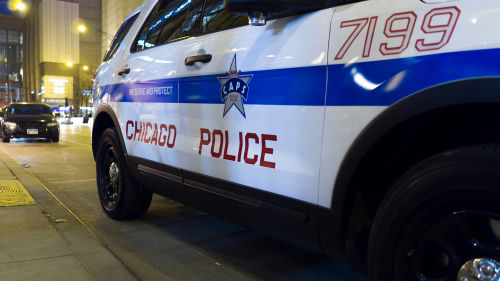President Trump’s threat to send federal forces into Chicago after another bloody holiday weekend has ignited a fierce constitutional and political showdown, as state leaders scramble to block what they see as unprecedented federal overreach.
Trump Issues Ultimatum After Labor Day Violence
On September 1, 2025, President Trump took to Truth Social to publicly call out Illinois Governor J.B. Pritzker, labeling him “weak and pathetic” and demanding immediate action after at least eight people were killed and 48 wounded in Chicago over Labor Day weekend. Trump’s message was clear: if Pritzker fails to restore order, the federal government, potentially including the National Guard, will intervene. This move echoes Trump’s recent federalization of the Metropolitan Police in Washington, D.C., an action he claims led to a rapid decline in crime but which stirred controversy over executive authority and local autonomy.
Chicago’s Mayor Brandon Johnson responded quickly, signing an executive order to block federal agencies from coordinating with local authorities without city approval and mandating complete transparency from federal agents. Governor Pritzker and state officials condemned Trump’s threats as unconstitutional and politically motivated, vowing to use “every legal tool” to prevent what they described as a dangerous power grab. These responses underscore a deepening rift between federal and state leaders over the boundaries of law enforcement and the rights of states to govern their own affairs without federal intrusion.
Constitutional Clash: State Sovereignty Versus Federal Power
The heart of this standoff is whether the federal government can override state authority to deploy military forces for civilian law enforcement. Legal experts point out that while governors typically control their own National Guard units, the president can federalize these forces under specific circumstances, a process fraught with legal hurdles and historical controversy. In past decades, federal intervention in cities like Los Angeles and D.C. has faced intense local resistance and court challenges. Illinois leaders argue that Trump’s threats trample on the Tenth Amendment, which reserves powers not delegated to the federal government to the states—including most policing and public safety functions.
Trump’s supporters, however, argue that runaway crime in Chicago represents a national crisis that justifies decisive federal action, especially when state and local leaders refuse to act. This argument resonates with many Americans who see decades of failed local policies and political grandstanding as having left communities vulnerable to violence and disorder. Yet, the threat of deploying troops against U.S. citizens raises serious questions about the erosion of constitutional norms and the future of state-federal relations, with consequences that could extend far beyond Chicago.
Expert Warnings and Community Fears
Retired military leaders and law enforcement professionals have voiced deep concerns about using the National Guard in urban policing. Major General William Enyart, a former Illinois National Guard commander, warns that soldiers are neither trained nor equipped for civilian law enforcement and that such deployments often fuel tensions rather than resolve them. Experts also highlight the financial burden: a similar four-month deployment in the past cost taxpayers $54 million. Meanwhile, Chicago residents face a dual threat—continued violence from unchecked crime and the risk of civil liberties being trampled by militarized enforcement.
Trump Slams Pritzker After Chicago Violence: ‘He Better Straighten It Out, FAST — or We’re Coming!’https://t.co/jFJWWB4bh8
— G_Kraig (@g_kraig) September 1, 2025
Politically, this confrontation is shaping up as a defining battle over federalism, law and order, and the limits of executive power. With both sides digging in—Trump promising action, Pritzker and Johnson preparing lawsuits and executive orders—the nation is watching to see whether constitutional safeguards or political ambition will win the day. The outcome will set a precedent for how America handles major urban crises in the future, with lasting implications for the balance of power between Washington and the states.
Sources:
Trump warns Illinois governor to fix Chicago or ‘we’re coming’
Trump slams Pritzker, Chicago crime, governor’s reported weight loss fuels 2028 speculation
Illinois Gov. Pritzker calls Trump’s National Guard threat unconstitutional
Labor Day violence in Chicago prompts Trump National Guard warning

